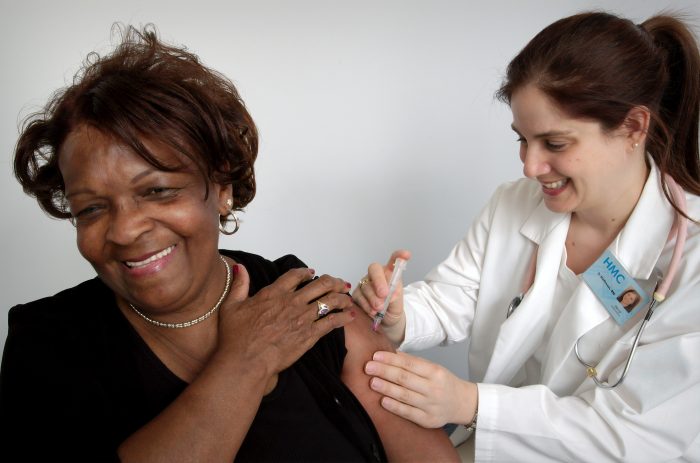PA Long-Term Grant Program – Request for Applications
The Pennsylvania Departments of Human Services (DHS), Health, and Aging have announced their joint collaboration to operate Pennsylvania’s Long-Term Care (LTC) grant program for use of federally imposed civil money penalty (CMP) funds. Applications for the LTC grant program will be accepted from April 1, 2021 through May 31, 2021. Applications will not be accepted outside of these dates.
Additional information on this grant program, guidelines for applicants, the application and selection process, and how to apply for the nursing care facility Federal CMP program, are located on the Long-Term Care Grant webpage on the Department of Health (DOH) website. Applications should be submitted to ra-pwCMPgrants@pa.gov.
Questions should be directed to the Office of Long-Term Living at ra-pwCMPgrants@pa.gov or call 1-800-932-0939, option 1, Monday through Friday 9:00 am to 12:00 pm and 1:00 pm to 4:00 pm.
COVID-19 Vaccine and Visitation Webinar March 25
Office of Vocational Rehabilitation and Bureau of Special Education Memorandum of Understanding

Shannon Austin, MS, Executive Director of Office of Vocational Rehabilitation (OVR) and Carole L. Clancy, Bureau Director of Special Education have announced completion of a revised Memorandum of Understanding (MOU). The revision of the MOU is a product of ongoing collaboration between both agencies to strengthen agency partnership and enhance transition outcomes for students with disabilities in the Commonwealth.
Additionally, there will be a series of webinars in April and May: Understanding the Memorandum: OVR and BSE Working Together as One. This series will overview the MOU agreement between OVR and the Bureau of Special Education (BSE), pertaining to the provision of transition services for students with disabilities. Throughout the series, participants will be introduced to tools for collaboration between OVR, BSE, Local Education Agencies (LEAs), youth, and families.
What’s the Big Deal About Trauma?
Registration is required for this FREE event:
Thursday, April 22, 2021 from 2:30 pm to 4:00 pm
PA Care Partnership is offering a free webinar: What’s the Big Deal about Trauma? Many organizations today are under a lot of pressure to become trauma-informed. Both professionals and parents are hearing about the importance of recognizing – as well as preventing – trauma from happening to the children in their lives. These demands can be a source of confusion: what does being trauma-informed mean? Why is it so important? What is trauma about, anyway?
You are invited to attend this webinar, which will feature Dr. Sandra Bloom, author of Creating Sanctuary: Toward the Evolution of Sane Societies, and Diane Wagenhals, Program Director for the Lakeside Global Institute. Together, they will describe what history and science have taught us about the nature of trauma, what becoming trauma-informed and trauma-responsive means, and why it is such a big deal.
Learning Objectives:
- Define trauma and its impact, why it is such a big deal;
- Describe the causes and neurobiological underpinnings of trauma; and
- Explain what being trauma-informed means for organizations and individuals.
RCPA Telehealth Update & Resources
As organizations continue the practice of telehealth, outcomes continue to support telehealth utilization and expansion, as well as the development of resources and guidance. In the coming weeks, RCPA will release the results of its recent telehealth member survey as a follow up to the original RCPA Telehealth Survey Overview in 2020. This updated initiative, in partner with Woods Services, takes a deeper look into the intersects of service delivery, funding, and satisfaction metrics. This new RCPA Telehealth overview will be available the week of March 29, 2021.
The Department of Health and Human Services recently shared a new best practice guide on telehealth for behavioral health care. Behavioral health – like other areas of health care – has changed significantly due to the COVID-19 public health emergency. It is now easier for mental health providers to offer and be reimbursed for telebehavioral health services. Telehealth can also make behavioral health services safer, more private, and convenient for patients who can access care from their home. Find resources in the telebehavioral health best practice guide on getting started, developing a strategy, billing, preparing patients, and more.
Additionally, in response to the increased use and expanded coverage of telehealth during the COVID-19 pandemic, CMS’s From Coverage to Care (C2C) released two new resources to support providers and patients in making the most of virtual care:
- Telehealth for Providers: What You Need to Know – Providers can learn how and when to use telehealth. Topics include how to set up telehealth services, how to conduct a successful visit, and how to keep up to date on telehealth payment (particularly for Medicare and Medicaid).
- Telehealth: What to Know for Your Family – Patients can find out the types of care they can receive through telehealth, how to prepare for an appointment, what to expect during a visit, and more. This resource is also available in Spanish.
Providers and partners can download graphics to post on their social media channels and help spread the word about these new resources. All of these resources can be downloaded at go.cms.gov/c2ctelehealth.
If you have feedback or questions regarding your organization and telehealth, please contact RCPA Policy Director Jim Sharp.
Gov. Wolf To Nominate Meg Snead To Serve As Secretary Of Human Services
Governor Wolf announced his intention yesterday to nominate Meg Snead to be the next Secretary of the Department of Human Services (DHS). RCPA President/CEO Richard Edley remarked, “With Ms. Snead’s broad, extensive background in the human services community, we are confident that positive change will continue, in our mutual goals towards serving the most vulnerable residents of our Commonwealth. RCPA has worked with Ms. Snead in the past on several key issues and we look forward to continuing this collaboration with her in this new role as Secretary.” View the official press release.
Human Services Secretary Teresa Miller to Depart Wolf Administration April 30
Department of Human Services (DHS) Secretary Teresa Miller has announced that she is vacating her position at the end of April, to pursue an opportunity out of state. Governor Wolf has also made public his plan to nominate Meg Snead, Secretary of Policy and Planning, to assume these responsibilities. RCPA President/CEO Richard Edley notes, “RCPA is extremely grateful to Secretary Miller for all of her hard work on behalf of the human service providers and those individuals they serve in the Commonwealth. She will be missed, and we wish her the best in her new endeavor.” View the official press release here.
















